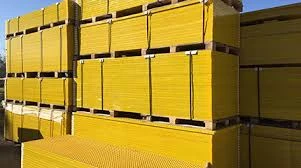
-
 Afrikaans
Afrikaans -
 Albanian
Albanian -
 Amharic
Amharic -
 Arabic
Arabic -
 Armenian
Armenian -
 Azerbaijani
Azerbaijani -
 Basque
Basque -
 Belarusian
Belarusian -
 Bengali
Bengali -
 Bosnian
Bosnian -
 Bulgarian
Bulgarian -
 Catalan
Catalan -
 Cebuano
Cebuano -
 China
China -
 China (Taiwan)
China (Taiwan) -
 Corsican
Corsican -
 Croatian
Croatian -
 Czech
Czech -
 Danish
Danish -
 Dutch
Dutch -
 English
English -
 Esperanto
Esperanto -
 Estonian
Estonian -
 Finnish
Finnish -
 French
French -
 Frisian
Frisian -
 Galician
Galician -
 Georgian
Georgian -
 German
German -
 Greek
Greek -
 Gujarati
Gujarati -
 Haitian Creole
Haitian Creole -
 hausa
hausa -
 hawaiian
hawaiian -
 Hebrew
Hebrew -
 Hindi
Hindi -
 Miao
Miao -
 Hungarian
Hungarian -
 Icelandic
Icelandic -
 igbo
igbo -
 Indonesian
Indonesian -
 irish
irish -
 Italian
Italian -
 Japanese
Japanese -
 Javanese
Javanese -
 Kannada
Kannada -
 kazakh
kazakh -
 Khmer
Khmer -
 Rwandese
Rwandese -
 Korean
Korean -
 Kurdish
Kurdish -
 Kyrgyz
Kyrgyz -
 Lao
Lao -
 Latin
Latin -
 Latvian
Latvian -
 Lithuanian
Lithuanian -
 Luxembourgish
Luxembourgish -
 Macedonian
Macedonian -
 Malgashi
Malgashi -
 Malay
Malay -
 Malayalam
Malayalam -
 Maltese
Maltese -
 Maori
Maori -
 Marathi
Marathi -
 Mongolian
Mongolian -
 Myanmar
Myanmar -
 Nepali
Nepali -
 Norwegian
Norwegian -
 Norwegian
Norwegian -
 Occitan
Occitan -
 Pashto
Pashto -
 Persian
Persian -
 Polish
Polish -
 Portuguese
Portuguese -
 Punjabi
Punjabi -
 Romanian
Romanian -
 Russian
Russian -
 Samoan
Samoan -
 Scottish Gaelic
Scottish Gaelic -
 Serbian
Serbian -
 Sesotho
Sesotho -
 Shona
Shona -
 Sindhi
Sindhi -
 Sinhala
Sinhala -
 Slovak
Slovak -
 Slovenian
Slovenian -
 Somali
Somali -
 Spanish
Spanish -
 Sundanese
Sundanese -
 Swahili
Swahili -
 Swedish
Swedish -
 Tagalog
Tagalog -
 Tajik
Tajik -
 Tamil
Tamil -
 Tatar
Tatar -
 Telugu
Telugu -
 Thai
Thai -
 Turkish
Turkish -
 Turkmen
Turkmen -
 Ukrainian
Ukrainian -
 Urdu
Urdu -
 Uighur
Uighur -
 Uzbek
Uzbek -
 Vietnamese
Vietnamese -
 Welsh
Welsh -
 Bantu
Bantu -
 Yiddish
Yiddish -
 Yoruba
Yoruba -
 Zulu
Zulu
fiberglass oil tank
Understanding Fiberglass Oil Tanks Benefits and Applications
Fiberglass oil tanks are becoming increasingly popular in various industries, particularly for the storage of fuels and other petroleum products. These tanks, constructed from fiberglass-reinforced plastic, offer a range of advantages over traditional steel and concrete storage options. In this article, we will explore the benefits and applications of fiberglass oil tanks, highlighting their importance in modern storage solutions.
One of the most significant advantages of fiberglass oil tanks is their resistance to corrosion. Unlike steel tanks, which can succumb to rust and degradation over time, fiberglass tanks are immune to the effects of moisture and chemicals found in oil. This corrosion-resistant property ensures a longer lifespan for the tanks, significantly reducing maintenance costs and the need for frequent replacements.
Another benefit of fiberglass oil tanks is their lightweight nature. Weighing considerably less than steel or concrete tanks, fiberglass tanks are easier to transport and install. This lightweight characteristic can lead to lower transportation costs, as well as simplified installation processes that can help minimize labor expenses. Additionally, their flexibility in design allows for customization, making it easier to tailor the tank to specific storage needs or spatial constraints.
fiberglass oil tank

Fiberglass tanks are also known for their seamless construction. Unlike welded steel tanks, which can be prone to leaks at the joints, fiberglass tanks are molded into a single unit, significantly reducing the risk of leaks. This feature not only helps to prevent environmental contamination but also ensures the safety of the stored products. Furthermore, many fiberglass tanks come with built-in secondary containment systems, further enhancing their reliability and safety.
From an environmental perspective, fiberglass oil tanks are increasingly favored due to their ability to minimize the risks associated with oil spills. In today’s regulatory environment, businesses are under greater pressure to comply with stringent environmental standards. The leak-proof design of fiberglass tanks helps organizations adhere to these regulations while protecting the surrounding ecosystems.
In addition to traditional petroleum storage, fiberglass oil tanks have applications in various industries, including agriculture, marine, and construction. In agriculture, these tanks are often used to store fuel for machinery, while in the marine industry, they serve as reliable storage for diesel and other fuels on boats. In construction, fiberglass tanks provide an efficient solution for storing fuels and lubricants on job sites.
In conclusion, fiberglass oil tanks represent a significant advancement in fuel storage technology. Their corrosion resistance, lightweight design, seamless construction, and environmental safety features make them an ideal choice for a wide range of applications. As businesses strive to find more efficient and environmentally friendly solutions, the popularity of fiberglass oil tanks is likely to continue growing, paving the way for safer and more reliable fuel storage options.
Latest news
-
Exploring the Benefits of Top Hammer Drifter Rods for Enhanced Drilling PerformanceNewsJun.10,2025
-
High-Precision Fiberglass Winding Machine for GRP/FRP Pipe Production – Reliable & Efficient SolutionsNewsJun.10,2025
-
FRP Pipes & Fittings for Shipbuilding - Corrosion-Resistant & LightweightNewsJun.09,2025
-
Premium FRP Flooring Solutions Durable & Slip-ResistantNewsJun.09,2025
-
Premium Fiberglass Rectangular Tanks Durable & Lightweight SolutionNewsJun.09,2025
-
Tapered Drill String Design Guide Durable Performance & UsesNewsJun.09,2025









